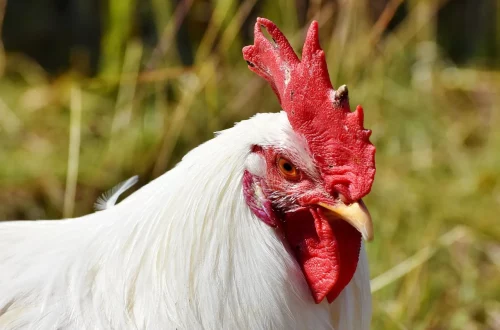
Homeopathic Remedies for Treating Yeast Infection in Dog’s Ears
Yeast infections in dogs, particularly in their ears, can be a source of discomfort and distress for our furry friends. These infections are often caused by an overgrowth of the Candida species, a type of fungus that naturally resides in the body. When the balance of microorganisms is disrupted, it can lead to an overabundance of yeast, resulting in an infection. Dogs with floppy ears, allergies, or those that swim frequently are particularly susceptible to these infections.
Symptoms can include excessive scratching at the ears, foul odor, redness, and discharge. Owners often notice their pets shaking their heads or exhibiting signs of pain and discomfort. While conventional treatments such as antifungal medications are commonly prescribed, many pet owners are exploring alternative approaches, including homeopathic remedies. These natural treatments can be appealing as they aim to address the root cause of the problem, rather than just the symptoms. However, it’s essential to approach homeopathy with care and knowledge, as not all remedies will suit every dog. This article will explore various homeopathic options for treating yeast infections in dogs’ ears, providing insights into their efficacy and application.
Understanding Yeast Infections in Dogs
Yeast infections, specifically in the ears, are a common issue among dogs and can be caused by several factors. The ears’ warm and moist environment is ideal for yeast growth, especially in breeds with long, floppy ears or those that have an underlying skin condition. Allergies, whether environmental or food-related, can also contribute to the occurrence of yeast infections. When a dog’s immune system is compromised or when there is an imbalance in the skin’s natural flora, yeast can proliferate, leading to infection.
Recognizing the symptoms early is crucial for effective treatment. Common signs include itching, redness, swelling, and an unpleasant odor emanating from the ears. A dog may also shake its head frequently or scratch at its ears due to irritation. If left untreated, a yeast infection can lead to more severe complications, including chronic ear issues or secondary bacterial infections.
Maintaining proper ear hygiene is vital in preventing yeast infections. Regular cleaning of the ears with appropriate solutions can help keep yeast levels in check. However, if an infection does occur, homeopathic remedies can offer a gentler approach to treatment. These remedies work by stimulating the body’s natural healing processes, making them suitable for dogs with sensitivities or those who may not tolerate conventional medications well.
As pet owners consider homeopathic options, it is essential to consult with a veterinarian who is knowledgeable about both conventional and alternative treatments. This ensures that the chosen remedy is appropriate for the specific condition and health status of the dog.
Homeopathic Remedies: An Overview
Homeopathy is a holistic healing system that operates on the principle of “like cures like.” This means that a substance that causes symptoms in a healthy individual can, in minute doses, treat similar symptoms in a sick individual. Homeopathic remedies are prepared through a process of serial dilution and succussion (vigorous shaking), which proponents believe enhances the healing properties of the substance while minimizing potential side effects.
For dogs suffering from yeast infections in their ears, several homeopathic remedies may prove beneficial. Some of the most commonly used remedies include:
1. **Calcarea carbonica**: This remedy is often recommended for dogs that are prone to recurrent infections and exhibit symptoms of lethargy, sensitivity to cold, and a general lack of vitality. It can help support the immune system and restore balance in the body.
2. **Sulphur**: Known for its detoxifying properties, Sulphur can be beneficial for dogs with itchy, inflamed skin or ears. It is particularly effective when the ears have a strong odor and the dog displays signs of discomfort.
3. **Thuja occidentalis**: This remedy may help dogs that have chronic ear infections, especially those related to allergies. It is often indicated when there is a history of skin issues or other allergic reactions.
4. **Arsenicum album**: This remedy is suitable for dogs experiencing intense itching and discomfort, often with a burning sensation. It can help calm the irritation and provide relief.
5. **Natrum muriaticum**: This is another remedy that can be useful for dogs with chronic infections, particularly if they also exhibit signs of depression or sensitivity to the sun.
Each of these remedies should be selected based on the individual dog’s symptoms and overall health. It’s recommended to work with a qualified homeopath or veterinarian to determine the most suitable remedy and dosage.
Additionally, lifestyle factors should be addressed to optimize treatment outcomes. Ensuring a balanced diet, regular exercise, and proper grooming can help strengthen the dog’s immune system and reduce the likelihood of future yeast infections.
Natural Approaches to Ear Care
In addition to homeopathic remedies, maintaining good ear hygiene is vital for preventing and treating yeast infections in dogs. Regular ear cleaning can help remove debris and wax that can harbor yeast and bacteria. Pet owners should use a vet-recommended ear cleaner, which is typically alcohol-free and designed to maintain the natural balance of the ear environment.
When cleaning your dog’s ears, it’s essential to approach the task with care. Begin by gently lifting the ear flap to expose the ear canal. Apply the cleaner according to the product instructions, allowing it to penetrate the canal without forcing it too deep. Massaging the base of the ear can help distribute the cleaner and loosen any buildup. Afterward, allow your dog to shake its head, which can help expel excess fluid.
For dogs that are prone to ear infections, consider implementing a regular cleaning schedule. Depending on the dog’s breed and environment, cleaning once a week or every two weeks may be appropriate. However, if a yeast infection is already present, it’s best to consult with a veterinarian before attempting to clean the ears, as improper cleaning can exacerbate the situation.
In addition to cleaning, dietary considerations can also play a significant role in managing yeast infections. A balanced diet that supports the immune system is crucial. Some owners have found success in integrating probiotics into their dog’s diet to help maintain a healthy balance of microorganisms in the body. Probiotics can aid in digestion and improve immune function, potentially reducing the risk of yeast overgrowth.
While homeopathic remedies and natural care methods can be effective, it’s important to monitor the dog’s condition closely. If symptoms persist or worsen, seeking veterinary assistance is essential to ensure appropriate treatment and prevent complications.
When to Seek Veterinary Assistance
While homeopathic remedies and natural ear care methods can be beneficial for treating yeast infections, there are instances when veterinary intervention is necessary. If you notice persistent symptoms such as severe itching, swelling, or a foul odor that does not improve with home treatment, it is crucial to consult a veterinarian.
Veterinarians can perform a thorough examination of the ears and may take samples to determine the specific type of yeast or bacteria involved. This information can guide treatment decisions and ensure that any underlying issues, such as allergies or skin conditions, are addressed.
In some cases, a veterinarian may recommend antifungal or antibacterial medications to address the infection more effectively. While these treatments may differ from homeopathic approaches, they can provide relief when natural methods are insufficient.
Additionally, if your dog exhibits signs of pain, distress, or significant behavioral changes, it’s vital to seek professional help. Chronic ear infections can lead to more severe complications, including hearing loss or the formation of abscesses, which require prompt medical attention.
In conclusion, while homeopathic remedies can offer a natural approach to treating yeast infections in dogs’ ears, it’s essential to remain vigilant and proactive in your pet’s care. Regular veterinary check-ups and open communication with your veterinarian can help ensure the health and well-being of your furry companion.
**Disclaimer**: This article is not intended as medical advice. For any health-related concerns regarding your pet, always consult a veterinarian for professional guidance.




